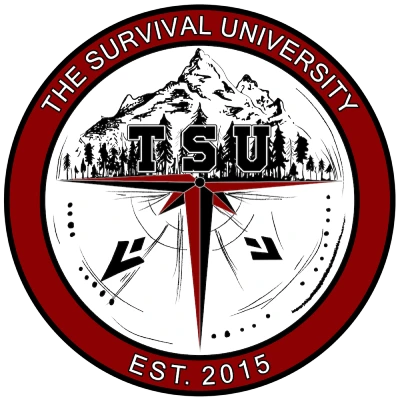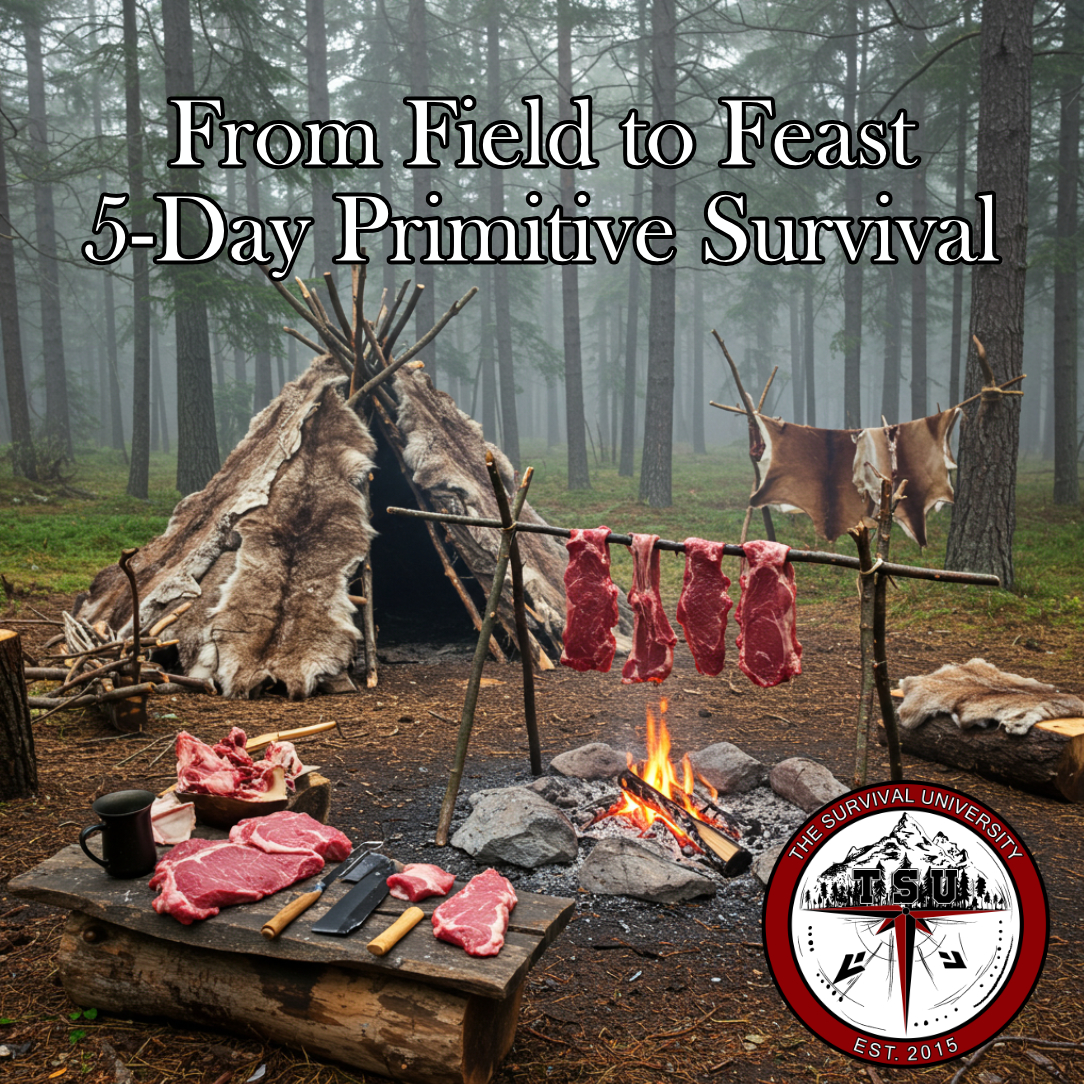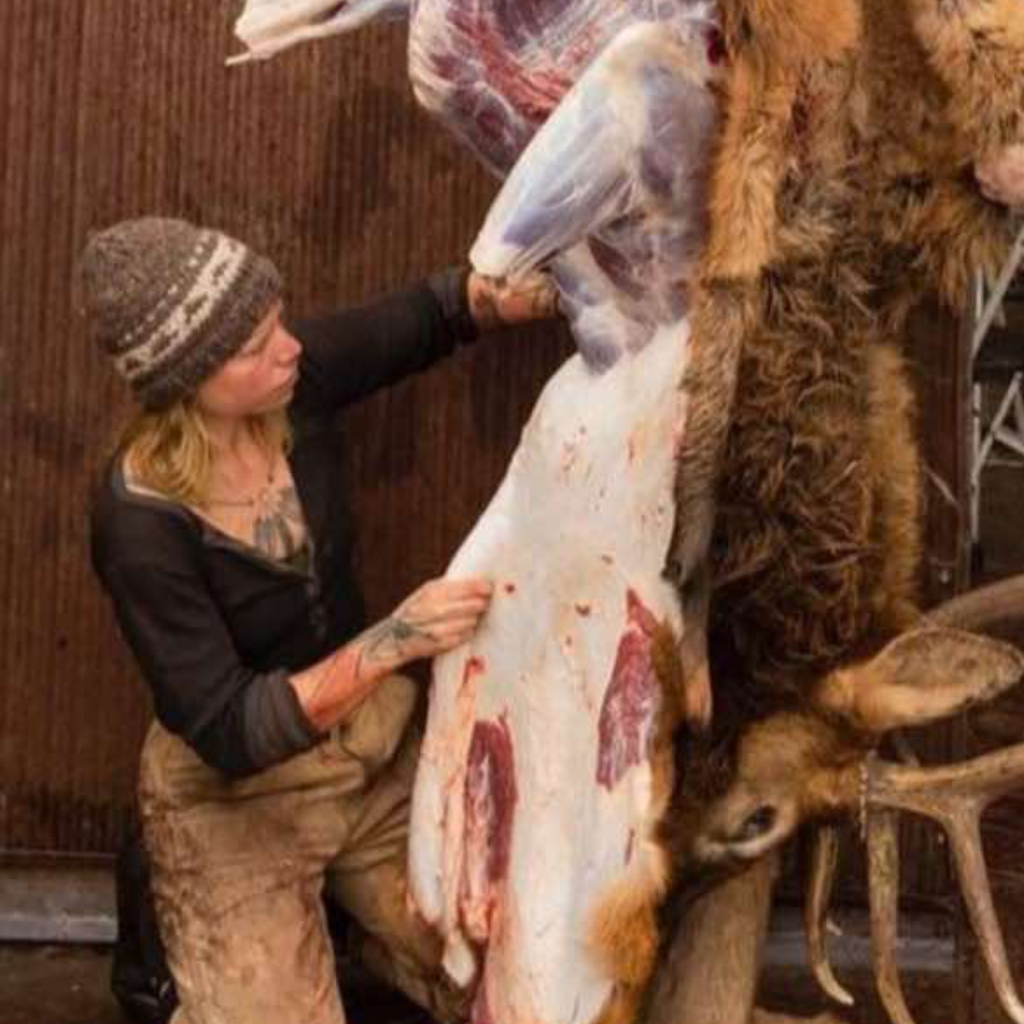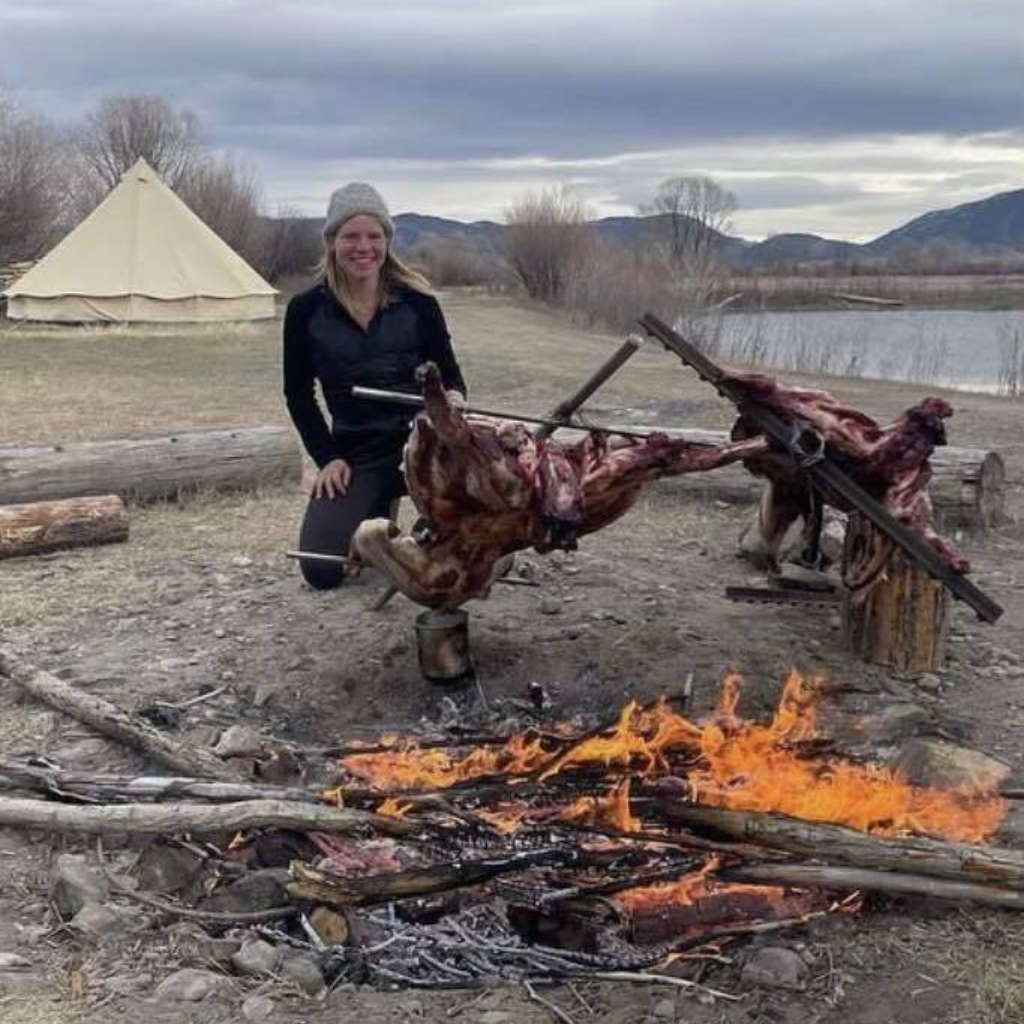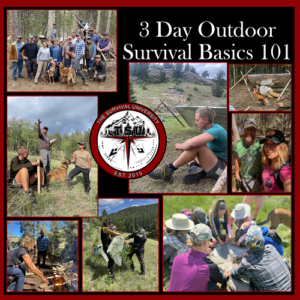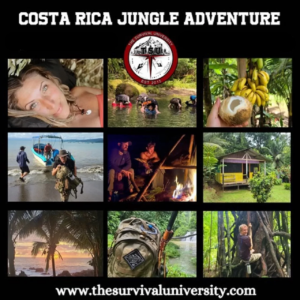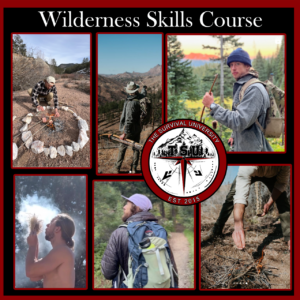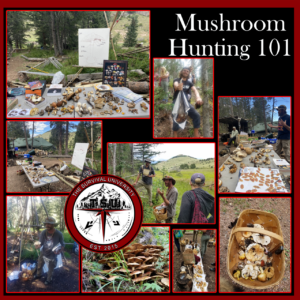Cart
From Field to Feast 5-Day Primitive Survival
$1,195.00
This 5-day immersive survival course, led by wilderness expert Ryan Maguire and Emily Bartle, focuses on teaching the essential skills of dispatching, processing, and utilizing every part of a live goat or sheep for survival. Participants will experience firsthand how to humanely dispatch an animal, butcher it, and use all its parts—meat, bones, hide, and sinew—to sustain themselves in a wilderness setting. This course emphasizes respect for the animal, sustainable practices, and the art of making the most out of natural resources. In addition to animal processing, students will also learn critical primitive survival skills such as fire-making, shelter-building, and tool crafting.
Description
What to Expect
This course is designed to be fluid and adaptable, allowing participants to learn at their own pace and according to conditions. Each day will focus on core survival concepts, but the exact schedule will depend on factors like weather, terrain, and the pace of the group. The goal is not to rush through activities but to ensure everyone gains practical, hands-on experience with each skill. Expect a mix of demonstrations, hands-on practice, and time to reflect on the processes and lessons learned. Participants should come prepared for unpredictable conditions, both mentally and physically. The experience will challenge your ability to think critically, adapt, and sustain yourself in the wild with minimal resources.
Over the course of five days, you’ll step into the world of off-grid living—learning how to ethically dispatch and process a farm animal, cook it over fire, preserve the meat without refrigeration, and use every part of the animal to support life in the wilderness. This is a raw, immersive survival training focused on real-life application, not theory.
You’ll master field butchering, firecraft, primitive cooking, bone and sinew tool-making, and hide utilization. Each lesson is grounded in ancient techniques adapted for modern-day backcountry use. This isn’t a sanitized version of survival—this is hands-on, full-contact, dirt-under-your-nails learning that will connect you to what it really means to live off the land.
Whether you’re a hunter, homesteader, prepper, or just curious about primitive living skills, this course will leave you with a new respect for the natural world and a toolkit of skills to keep you fed, warm, and prepared—no matter where you are.
Key Learning Objectives
• Ethical Dispatching: Learn the humane methods of dispatching a live animal for survival purposes.
• Complete Animal Processing: Master butchering techniques and learn to preserve meat without modern tools.
• Maximizing Resources: Use bones, sinew, and hide to create essential survival tools, clothing, and gear.
• Primitive Survival Skills: Develop core skills such as fire-making, shelter-building, and natural cordage crafting.
• Sustainability in Survival: Learn to respect and fully utilize nature’s offerings to thrive in austere environments.
________________________________________
Core Skills Covered
Animal Dispatch and Butchery
• Learn humane and respectful dispatching techniques for goats or sheep.
• Process the entire animal, focusing on sustainable practices to maximize food and resources.
Primitive Cooking and Meat Preservation
• Use open-fire cooking methods and primitive preservation techniques like drying or smoking to prepare and store meat.
• Gain the skills to create nourishing meals in survival situations.
Bone and Sinew Tool Crafting
• Craft practical survival tools such as knives, fish hooks, or needles from animal bones.
• Use sinew to make durable cordage for use in trapping, shelter-building, and tool repair.
Hide Tanning and Utilization
• Learn basic hide preparation and tanning techniques.
• Use the animal hide for creating clothing, shelter coverings, or other survival gear.
Shelter and Fire-Making
• Build functional survival shelters using natural materials and animal hide.
• Master primitive fire-starting methods using friction fire and animal parts as fuel or tools.
________________________________________
Course Takeaways
By the end of the course, participants will:
• Have a deep understanding of how to ethically harvest and process an animal in a survival situation.
• Know how to use every part of the animal to make tools, food, and shelter.
• Gain practical experience in core survival skills like fire-making and shelter-building.
• Develop a stronger connection to nature and a respect for sustainable living practices in the wild.
________________________________________
Who Should Attend?
This course is ideal for anyone looking to deepen their understanding of primitive survival skills. Whether you’re a survival enthusiast, hunter, homesteader, or simply someone wanting to push your limits in the wilderness, this immersive experience will equip you with the tools and knowledge to thrive in nature.
________________________________________
Instructor: Ryan Maguire
Ryan Maguire is a skilled wilderness survival instructor with years of experience teaching primitive survival techniques. His approach blends ancient practices with modern survival needs, empowering participants to respect and use nature’s resources responsibly.
________________________________________
This course offers a unique opportunity to fully immerse yourself in the natural world, learning to not just survive but thrive with limited resources. Come prepared to challenge your limits, learn new skills, and walk away with a profound understanding of the natural world around you.
Participants will be hiking into a remote location, so all gear must be carried in a single backpack. This is a minimalist course—travel light and pack smart. Bring only what you truly need, but make sure you’re comfortable enough to enjoy the experience. If it doesn’t fit in your pack, it stays behind.
Accommodations & Hygiene
There are no formal accommodations for this course. Participants will be staying in primitive, self-built shelters or under tarps at a remote location. All gear must be carried in during a hike to the training site, and students should be fully prepared to live off-grid.
Water will be sourced from a nearby stream, and students will be taught how to collect and purify it as part of the course. There are no toilets or potable water on-site—all sanitation will be primitive, and students are expected to follow Leave No Trace hygiene practices. Bring your own hygiene essentials
SUGGESTED GEAR LIST
We do not provide students with gear unless they have purchased it from us ahead of time. Not much gear is needed for our courses, though good equipment does speed the learning process up greatly! Gear does not have to be purchased from our store to attend the course, but we recommend survival gear of equivalent quality.
Minimalist Gear List – Field-Based Animal Processing Course
Mandatory Gear List:
-
Backpack (comfortable, 40–60L max — internal frame or solid bush pack)
-
Fixed-blade knife (WE HIGHLY RECOMMEND THIS KNIFE)
-
Ferro rod
-
Metal pot or billy can (for boiling water and cooking)
-
Large Metal cup or small pot for cooking
-
Spoon or improvised utensil
-
Wool blanket or lightweight sleeping bag (expect cold nights)
-
Poncho that can double as a shelter (See Here)
-
Paracord (at least 25 ft)
-
Headlamp or small flashlight (red light preferred; with extra batteries)
-
Filter Water bottle or canteen (Katadyn or Grayl preferred)
-
Wool or synthetic clothing layers
-
Hat and gloves (weather dependent)
-
Basic hygiene kit (small toothbrush, small biodegradable soap, etc.)
-
Notebook & pencil (if you want to take notes)
-
Personal meds (in waterproof container)
-
Lightweight ground pad (inflatable or ground mat works)
-
Leather gloves (optional)
-
Waterproof Stuff sack
-
4 Bandanas or shemagh (multi-use: shade, filter, wrap, towel, etc.)
-
Bug net or repellent (optional)
Do Not Bring:
-
Coolers
-
Excess clothing
-
Multiple knives or tools
-
Heavy camping gear (no stoves, no chairs, no big tents)
-
Pack animals, wagons, or wheeled gear
CLOTHING REQUIRED
Warm outdoor clothing, warm gloves and hat, outdoor boots and wool socks. Cotton clothing is highly discouraged in the mountains! Wool will keep you warm even when wet and synthetics will dry faster. Layers are important in Colorado. You will want a water wicking base layer, an insulating mid layer, and a waterproof breathable outer shell. Check out our Clothes Layering Basics if you are unsure of what to wear.
NOTE
Due to the different levels of prior experience and knowledge among students in each class, individual outcomes may vary. Weather conditions can also be a factor in changing class content slightly. Nonetheless, our instructors will always endeavor to be as accommodating and consistent as circumstances will allow to ensure students get the best training experience and value for money.
